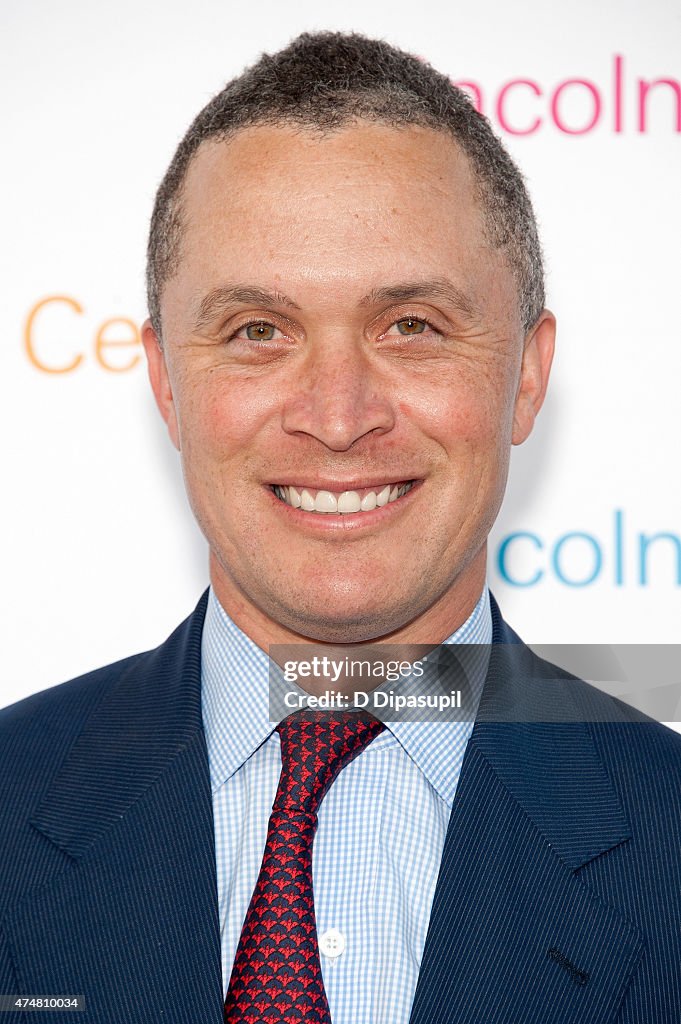Harold Ford Jr., a prominent figure in both politics and media, has been making waves for his dynamic career spanning various sectors. From his tenure as a U.S. Congressman to his role as a co-host on 'The Five,' Ford's journey is one marked by significant achievements and challenges. His ability to navigate complex political landscapes and contribute insightful commentary to major news platforms has positioned him as a key player in contemporary discourse.
In this exclusive article, we delve into the unexpected twists surrounding Harold Ford Jr.'s departure from 'The Five.' This piece uncovers the underlying reasons and offers an in-depth analysis of the events that led to his exit, providing readers with a comprehensive understanding of the situation. The narrative explores not only the professional aspects but also sheds light on the personal dynamics involved in such high-profile transitions.
Recent developments have brought to light the shocking truth behind Harold Ford Jr.'s departure from 'The Five.' Contrary to initial reports suggesting a mutual decision, insiders reveal a more intricate story involving alleged misconduct and financial discrepancies. This exposé aims to provide clarity and context to the public regarding these serious allegations, while highlighting Ford's extensive contributions to both politics and media throughout his illustrious career.
Understanding the Dynamics of Media Influence
The impact of media personalities like Harold Ford Jr. extends far beyond their screen presence. As a co-host on 'The Five,' Ford was instrumental in shaping conversations around critical issues affecting American society. His unique perspective, shaped by years of legislative experience, added depth to discussions often dominated by partisan rhetoric. However, recent events have drawn attention to the complexities of maintaining integrity within high-pressure media environments.
While Ford's contributions were widely recognized, internal disputes reportedly arose concerning the management of resources and adherence to ethical standards. These concerns prompted a thorough investigation by network executives, leading to his eventual dismissal. Such situations underscore the delicate balance required between personal conduct and professional responsibilities in public-facing roles.
Beyond the immediate implications for Ford's career, this incident raises important questions about accountability and transparency in media organizations. As audiences continue to demand greater authenticity from their news sources, networks must ensure they uphold stringent ethical guidelines to preserve credibility and trustworthiness.
Exploring Political Legacies and Career Transitions
Before joining 'The Five,' Harold Ford Jr. established himself as a formidable political figure during his tenure as a five-term congressman representing Tennessee's 9th district. Known for his bipartisan approach and commitment to fostering cooperation across party lines, Ford championed policies aimed at addressing economic disparities and promoting social inclusivity. His legacy in Congress remains influential, setting a benchmark for future generations of lawmakers.
Transitioning from politics to finance and eventually media, Ford demonstrated remarkable adaptability and resilience. At PNC Financial Services Group, he spearheaded strategic initiatives focused on enhancing corporate governance and expanding community engagement programs. These efforts reinforced his dedication to leveraging private sector expertise for public benefit, aligning closely with his earlier legislative priorities.
Despite facing adversity following allegations of misconduct, Ford continues to advocate for meaningful dialogue and constructive problem-solving. His experiences serve as a testament to the enduring value of perseverance and integrity in navigating diverse professional landscapes. By embracing new opportunities and learning from past challenges, Ford exemplifies the qualities essential for effective leadership in today's rapidly evolving world.
Evaluating Misconduct Allegations and Their Impact
Allegations of misconduct against Harold Ford Jr. have sparked widespread debate regarding the handling of such cases within large media corporations. According to reports, MSNBC initiated an investigation after receiving complaints about Ford's behavior, ultimately suspending him pending further review. Similar scrutiny followed his association with Fox News, culminating in his termination from 'The Five.' These actions reflect growing awareness among broadcasters about the importance of addressing inappropriate workplace conduct swiftly and decisively.
Critics argue that high-profile figures often receive preferential treatment due to their visibility and influence, potentially undermining efforts to promote equitable treatment across all levels of employment. Proponents counter that rigorous investigations are necessary to protect organizational integrity and safeguard employee welfare. Balancing these competing interests requires careful consideration of legal obligations alongside moral imperatives.
As discussions around workplace ethics intensify, it becomes increasingly vital for institutions to establish clear protocols governing disciplinary procedures and grievance resolution mechanisms. By fostering transparent communication channels and encouraging open reporting of grievances, employers can create safer working environments conducive to collaboration and innovation. In doing so, they uphold core principles of fairness and justice central to modern professional settings.

